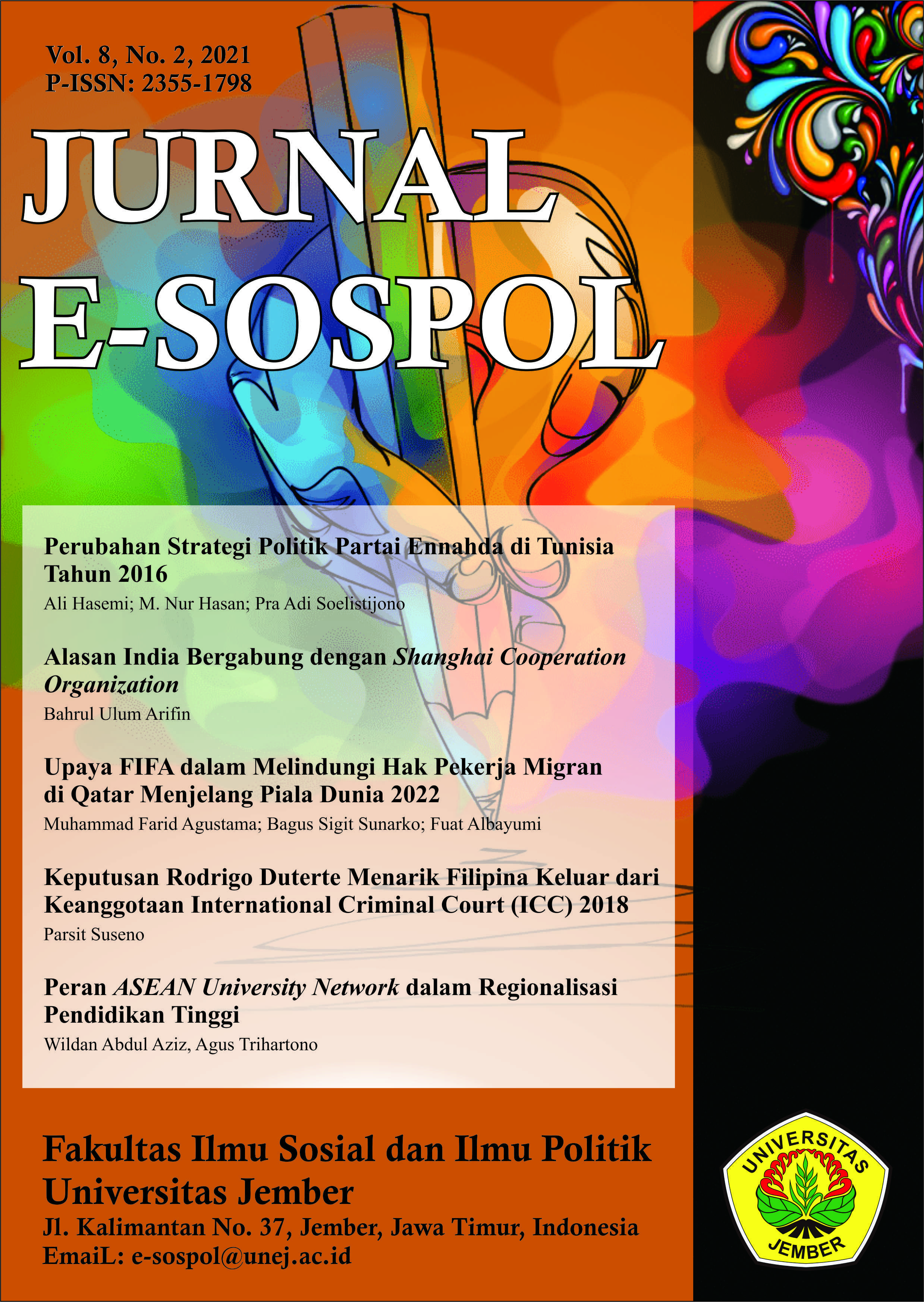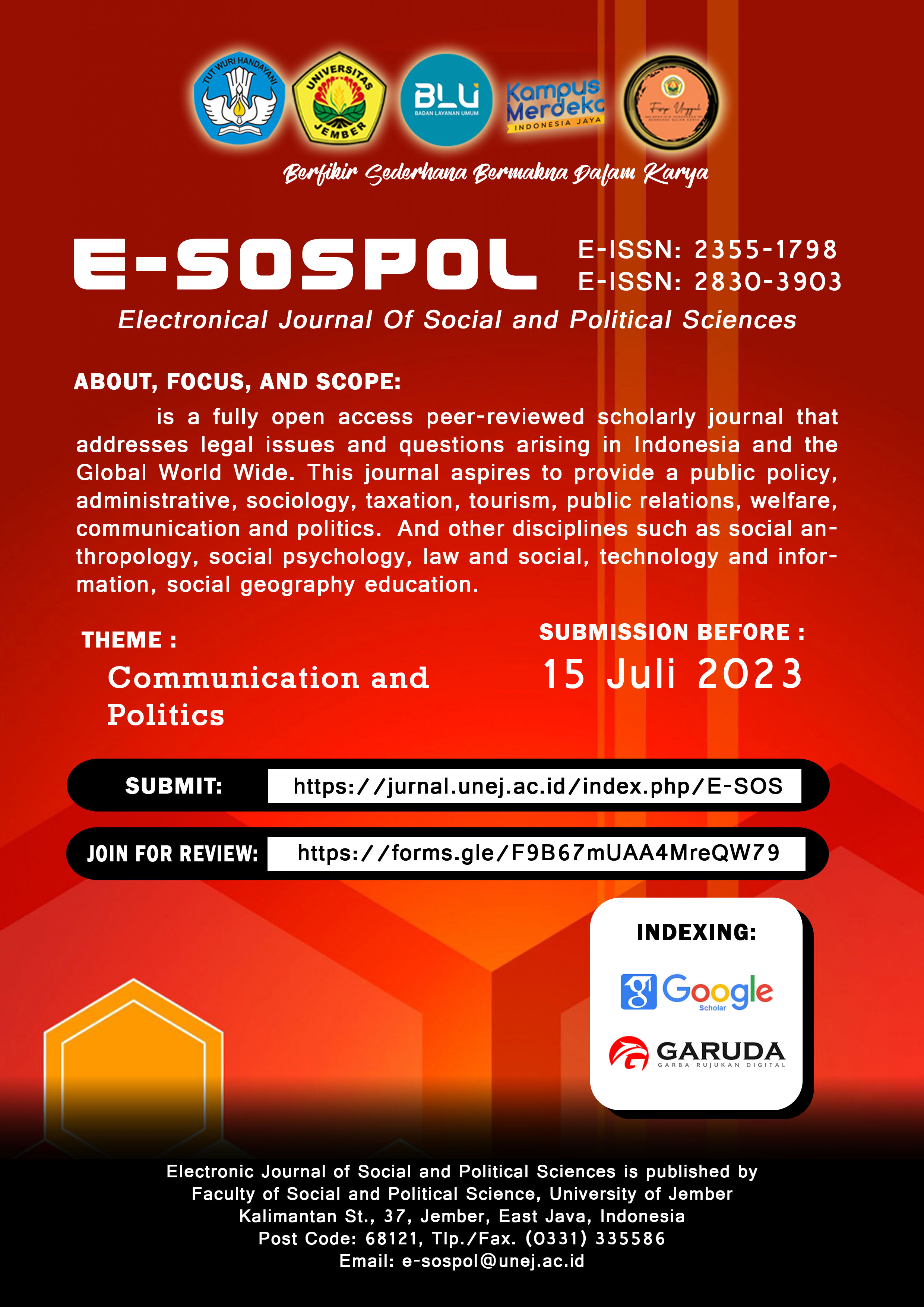Perubahan Strategi Politik Partai Ennahda di Tunisia Tahun 2016
Abstract
Ennahda is the name of one of the political parties in Tunisia which initially moved within the Islamism ideological direction. But when Ennahda elected became the head of government in 2011, the party became more compromised with political reality around and set out the rational choice while determining its political attitudes and actions. In 2015, Ennahda formed a coalition government with electoral winning parties as well as political rivals from the pro-secularist group, the Nidaa Tounes party. Some of Ennahda's loyal supporters, their party's policy is seen as a form of betrayal of his own ideological values because its acceptation for the notion of secularism and those step is considered as a deviation from Islamic beliefs. Moreover, at the 10th congress on May 20, 2016, Ennahda, which was previously seen as a symbol of the Islamism party, issued an official statement that its party separate itself between religious and political activities. Therefore, this study aims to explain the reasons and factors that led to changes in political strategy that occurred in the Ennahda party in Tunisia. The analysis of changes in Ennahda's political strategy will be reviewed through the concept of Post-Islamism. In order to support the discussion of this study, the author uses secondary data collected through library research studies and analyzed using qualitative descriptive methods. The results showed that the reasons and factors that led to changes in the political strategy of the Ennahda party at Tunisia in 2016 were due to: new political challenges, That is the pluralistic condition of political environment and the demands of compromise in order to build a civil society; the emergence of hardline Islamic movements and extremist groups in Tunisia; the events of the military coup over the Muslim Brotherhood in Egypt in 2013; and an increasing in public dissatisfaction with the party-led government coalition
Penulis yang mengusulkan naskahnya untuk dapat diproses penerbitannya pada e-SOSPOL dianggap telah menyetujui beberapa hal sebagai berikut:
1. Penulis tidak dapat menarik naskah yang telah usulkan untuk diproses hingga mendapat jawaban dari Ketua Dewan Penyunting atas status naskah artikel ilmiahnya (diterima atau ditolak untuk diterbitkan).
2. Penerbit tidak bertanggung jawab terhadap kasus plagiasi atas artikel yang terbit pada e-SOSPOL
3. Penerbit tidak bertanggung jawab atas data dan isi dari artikel yang diterbitkan pada e-SOSPOL, dan sepenuhnya merupakan tanggung jawab penulis.







.png)

